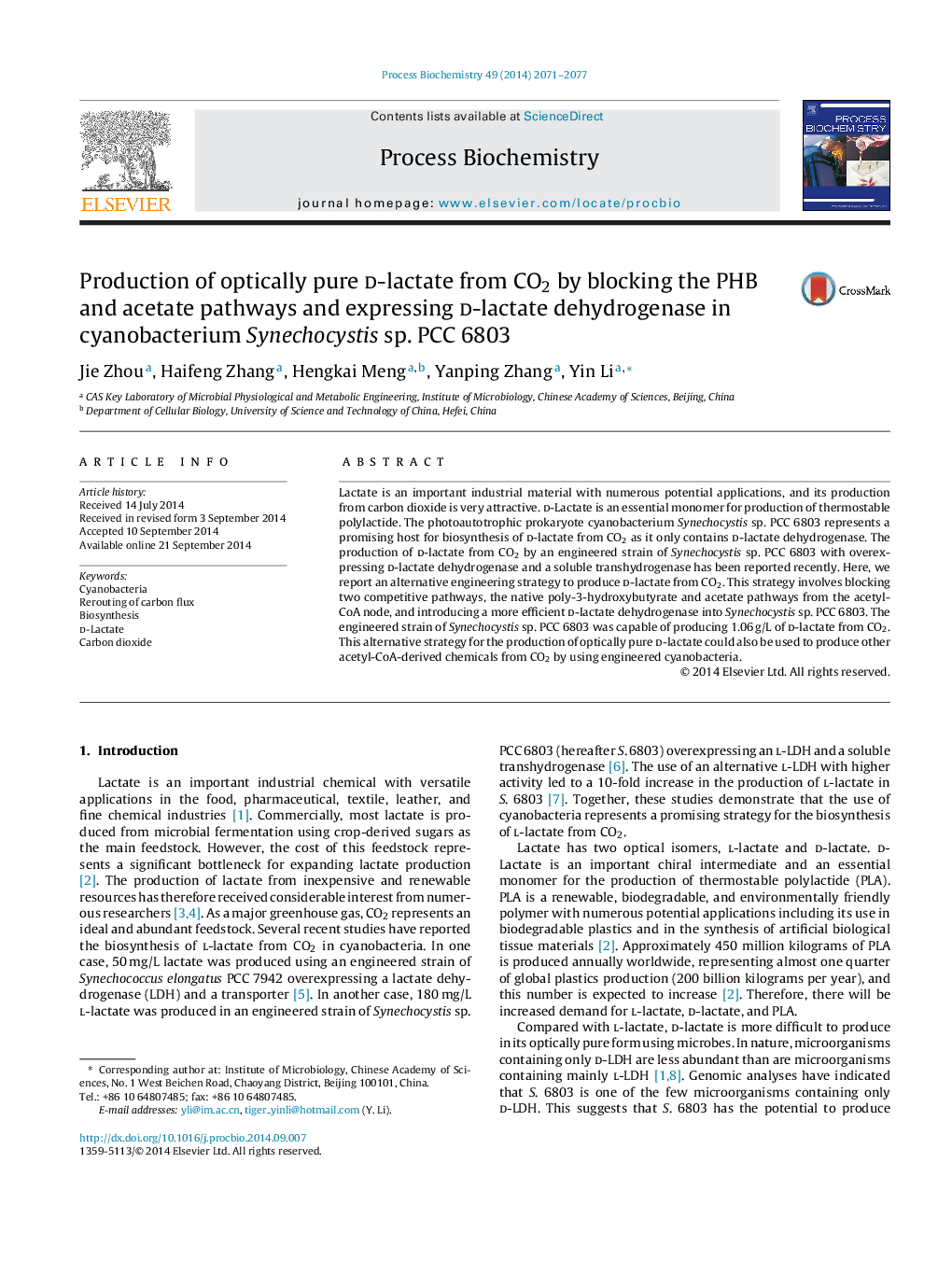| Article ID | Journal | Published Year | Pages | File Type |
|---|---|---|---|---|
| 10235283 | Process Biochemistry | 2014 | 7 Pages |
Abstract
Lactate is an important industrial material with numerous potential applications, and its production from carbon dioxide is very attractive. d-Lactate is an essential monomer for production of thermostable polylactide. The photoautotrophic prokaryote cyanobacterium Synechocystis sp. PCC 6803 represents a promising host for biosynthesis of d-lactate from CO2 as it only contains d-lactate dehydrogenase. The production of d-lactate from CO2 by an engineered strain of Synechocystis sp. PCC 6803 with overexpressing d-lactate dehydrogenase and a soluble transhydrogenase has been reported recently. Here, we report an alternative engineering strategy to produce d-lactate from CO2. This strategy involves blocking two competitive pathways, the native poly-3-hydroxybutyrate and acetate pathways from the acetyl-CoA node, and introducing a more efficient d-lactate dehydrogenase into Synechocystis sp. PCC 6803. The engineered strain of Synechocystis sp. PCC 6803 was capable of producing 1.06Â g/L of d-lactate from CO2. This alternative strategy for the production of optically pure d-lactate could also be used to produce other acetyl-CoA-derived chemicals from CO2 by using engineered cyanobacteria.
Related Topics
Physical Sciences and Engineering
Chemical Engineering
Bioengineering
Authors
Jie Zhou, Haifeng Zhang, Hengkai Meng, Yanping Zhang, Yin Li,
